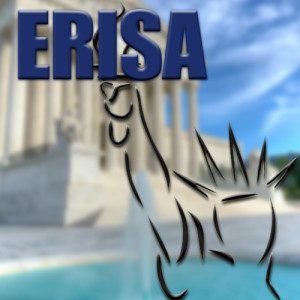Gobeille v. Liberty Mutual Insurance Company: ERISA Pre-empts State Health Care Database

On March 1, 2016, the U.S. Supreme Court held that the Employee Retirement Income Security Act (ERISA) pre-empts a Vermont law requiring certain entities, including health insurers, to report payments relating to health care claims to a state agency for compilation in an all-inclusive health care database. The case, Gobeille v. Liberty Mutual Insurance Company, 577 U. S. ____ (2016), was decided by a vote of 6-2.
The Facts of Gobeille v. Liberty Mutual Insurance Company
Gobeille v. Liberty Mutual Insurance Company Liberty Mutual Insurance Company’s health plan (Plan) is considered an “employee welfare benefit plan” under ERISA. The Plan’s third-party administrator, Blue Cross Blue Shield of Massachusetts, Inc. (Blue Cross), which is subject to Vermont’s disclosure statute, was ordered to transmit its files on eligibility, medical claims, and pharmacy claims for the Plan’s Vermont members. Citing concerns that the disclosure of such confidential information might violate its fiduciary duties, Liberty Mutual instructed Blue Cross not to comply and filed suit. It sought a declaration that ERISA pre-empts application of Vermont’s statute to the Plan and an injunction prohibiting Vermont from trying to acquire data about the Plan or its members. The District Court granted summary judgment to Vermont. However, the Second Circuit reversed, concluding that Vermont’s reporting scheme is pre-empted by ERISA.
The Majority Decision Regarding Gobeille v. Liberty Mutual Insurance Company
The majority of the Supreme Court concluded that ERISA pre-empts Vermont’s statute as applied to ERISA plans. Justice Anthony Kennedy authored the opinion.
In reaching its decision, the Court adopted a broad interpretation of ERISA’s pre-emption rule that may impact future cases. As noted by the Court, ERISA preempts “any and all State laws insofar as they may now or hereafter relate to any employee benefit plan.” According to the majority, the Vermont law is preempted because its govern, or interfere with the uniformity of, plan administration and therefore has an impermissible “connection with” ERISA plans. As Justice Kennedy further explained:
The State’s law and regulation govern plan reporting, disclosure, and—by necessary implication—recordkeeping. These matters are fundamental components of ERISA’s regulation of plan administration. Differing, or even parallel, regulations from multiple jurisdictions could create wasteful administrative costs and threaten to subject plans to wide-ranging liability. Pre-emption is necessary to prevent the States from imposing novel, inconsistent, and burdensome reporting requirements on plans.
The majority rejected Vermont’s argument that Liberty Mutual had failed to show that the State scheme has caused it to suffer economic costs. “A plan need not wait to bring a pre-emption claim until confronted with numerous inconsistent obligations and encumbered with any ensuing costs,” Justice Kennedy wrote. The Court also held that ERISA’s pre-existing reporting, disclosure, and recordkeeping provisions maintain their pre-emptive force regardless of whether the new Patient Protection and Affordable Care Act’s reporting obligations also pre-empt state law.
With regard to a way forward in light of the decision, Justice Stephen Breyer noted in his concurring opinion:
I see no reason why the Secretary of Labor could not develop reporting requirements that satisfy the States’ needs, including some State-specific requirements, as appropriate. Nor do I see why the Department could not delegate to a particular State the authority to obtain data related to that State, while also providing the data to the Federal Secretary for use by other States or at the federal level.
Previous Articles
SCOTUS Decision in Bowe v. United States Is First of the 2026 Term
by DONALD SCARINCI on February 5, 2026
In Bowe v. United States, 607 U.S. ___ (2026), the U.S. Supreme Court held that Title 28 U.S.C. § ...
SCOTUS Rules State Can’t Immunize Parties from Federal Civil Liability
by DONALD SCARINCI on January 29, 2026
In John Doe v. Dynamic Physical Therapy, LLC, 607 U.S. ____ (2025) the U.S. Supreme Court held that...
Supreme Court to Address Racial Discrimination in Jury Selection
by DONALD SCARINCI onWhile the U.S. Supreme Court has concluded oral arguments for the year, it continues to add cases t...
The Amendments
-
Amendment1
- Establishment ClauseFree Exercise Clause
- Freedom of Speech
- Freedoms of Press
- Freedom of Assembly, and Petitition
-
Amendment2
- The Right to Bear Arms
-
Amendment4
- Unreasonable Searches and Seizures
-
Amendment5
- Due Process
- Eminent Domain
- Rights of Criminal Defendants
Preamble to the Bill of Rights
Congress of the United States begun and held at the City of New-York, on Wednesday the fourth of March, one thousand seven hundred and eighty nine.
THE Conventions of a number of the States, having at the time of their adopting the Constitution, expressed a desire, in order to prevent misconstruction or abuse of its powers, that further declaratory and restrictive clauses should be added: And as extending the ground of public confidence in the Government, will best ensure the beneficent ends of its institution.





